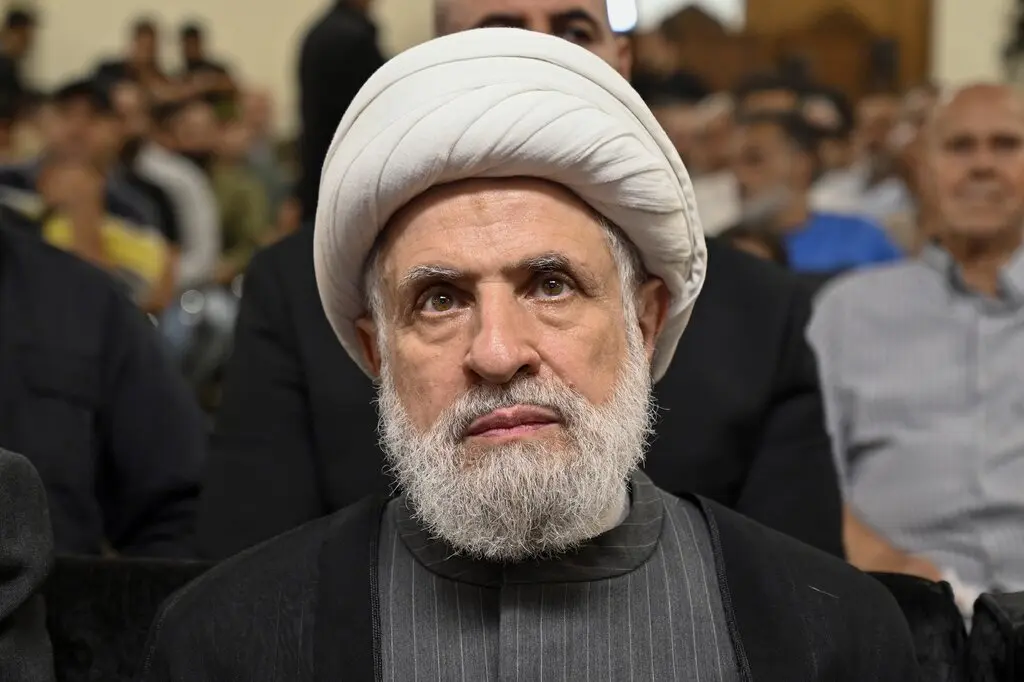Hezbollah has announced that the group’s deputy secretary general will take over as its new leader.
Naim Qassem succeeds long-time leader Hassan Nasrallah, who was killed in an Israeli airstrike in Beirut last month.
Qassem is one of the few senior Hezbollah leaders still alive after Israel targeted and eliminated much of the group’s leadership in a series of attacks.
His appointment comes as the conflict in Lebanon has escalated in recent weeks.
For over 30 years, Naim Qassem served as Hezbollah’s deputy secretary general and was one of the most recognized figures within the organization.

Hezbollah stated that he was elected by the Shura Council in accordance with the group’s regulations. While his current location is unclear, some reports suggest he may have fled to Iran, Hezbollah’s main supporter.
Born in Beirut in 1953 to a family from southern Lebanon, Qassem was one of Hezbollah’s founding members. Following Nasrallah’s death in an Israeli airstrike, he has delivered three televised addresses.
In one of his speeches, he asserted that a ceasefire was the only way Israel could ensure the safe return of its residents to the north.
In announcing Qassem’s promotion, Hezbollah issued a statement referring to him as “bearing the blessed banner in this march” and paid tribute to the late Nasrallah and others who died in the conflict.
Initially, cleric Hashem Safieddine was expected to take on the leadership role, but it was revealed on October 22 that he had been killed in an Israeli airstrike nearly three weeks earlier.
In response to Qassem’s appointment, Israeli Defence Minister Yoav Gallant remarked on social media that it was a “temporary appointment” and would “not last long.”
In recent weeks, Israel has conducted airstrikes across Lebanon, targeting what it claims are Hezbollah operatives, infrastructure, and weapons.
On Monday night, the Israeli military executed airstrikes in Lebanon’s eastern Bekaa Valley, a stronghold of Hezbollah, resulting in at least 60 fatalities and over 50 injuries, according to the Lebanese health ministry.
The Israeli military has not yet commented on the recent attack.
Israel has taken a more aggressive stance against Hezbollah following nearly a year of cross-border hostilities triggered by the war in Gaza. The Israeli government stated that its objective is to ensure the safe return of residents in border areas who have been displaced due to Hezbollah’s rocket, missile, and drone attacks.
According to Lebanon’s health ministry, over the past year, more than 2,700 people have died, and nearly 12,500 have been injured in the country.
During this time, Hezbollah has launched thousands of rockets and drones at Israel, resulting in at least 59 fatalities in northern Israel and the occupied Golan Heights.


